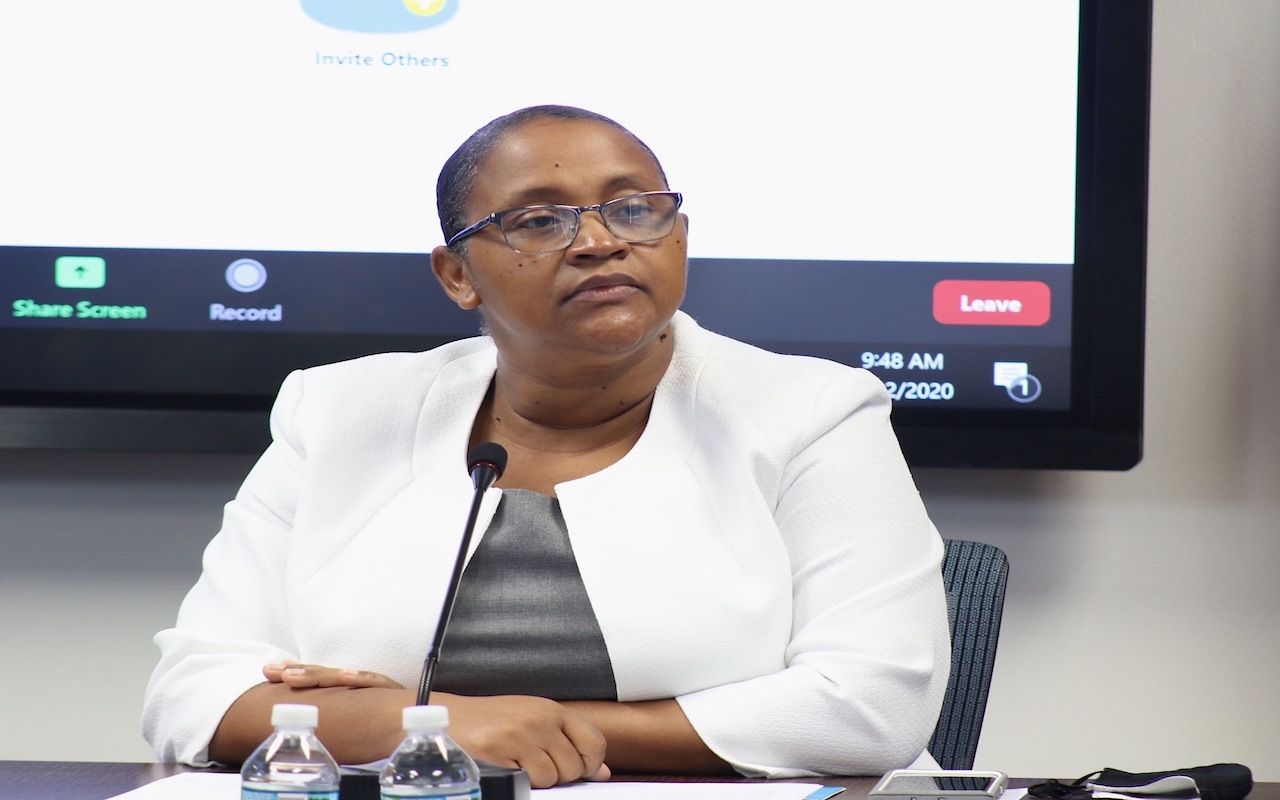The Caribbean Examinations Council (CXC) is raising alarm over a high number of “irregularities”, which included cheating, use of cell phones and smartwatches, and impersonation, in this year’s examinations.
There were also concerns about absenteeism and non-submission of School Based Assessments (SBAs).
CXC’s Director of Operations Dr Nicole Manning spoke about the issues on Thursday as she released the preliminary May/June 2023 CXC results for the Caribbean Secondary Education Certificate (CSEC), Caribbean Advanced Proficiency Exam (CAPE), Caribbean Vocational Qualification (CVQ), Caribbean Certificate of Secondary Level Competence (CCSLC) and Caribbean Primary Exit Assessment (CPEA).
Manning said there were 36 cases of irregularities this year, compared to 37 last year and 30 in 2021.
While the overall number of cases was only one more than last year, in the CAPE exams there was a significant increase – from two last year to 17 this year. However, there was a reduction in CSEC exam irregularities this year – 19 compared to 35 in 2022.
“The use of cellular phones is still our biggest issue. Candidates this year took cellular phones and used them in the exams . . . . We have also seen the introduction of smartwatches. That is another cause for concern,” Manning said.
She indicated that in addition to cheating, there were instances of impersonation, plagiarism, disruptive behaviour, use of unauthorised material and “territorial malpractice”.
The CXC official said the regional exams body was doing a full review of its regulations to ensure that all the irregularities are addressed.
Delving into subject performance, Manning said “the business subjects did very well this year” but officials must take stock of the performance in CSEC science subjects.
“Generally, the candidates did better overall but there is still attention that needs to be paid to particular subjects. And I have shared a number of areas where we can improve, the School-Based Assessment being one of the major areas for review,” she said.
She also indicated that 5 440 of the 90 299 candidates required to submit SBAs for CAPE did not do so.
“This is a concern for us. We are going around to stakeholders and we are encouraging not only the students, principals and teachers but also our parents to work with our students in completing those School-Based Assessments,” Manning said.
In relation to CSEC, the number of candidates not submitting SBAs this year was recorded at 5.36 per cent out of the 444 650 candidate entries.
“The missing SBAs is a concern because no submission means ungraded,” added Manning.
She reported that despite a drop in the number of candidates not showing up for the CAPE and CSEC examinations, absenteeism was still concerning. A total of 9 974 candidates did not turn up for their CAPE exams this year, resulting in them being ungraded. In the case of CSEC, 71 548 registered students were absent.
Manning reported increases in the number of subject entries for electronic testing for CAPE and CSEC, adding, “We must engage in greater utilisation of electronic administration of assessments. It is one of the vehicles that will help us in the increased security of our examinations and it will augur for greater efficiencies.”
She said there was also an increase in the number of candidate and subject entries for the CSEC and CAPE examinations this year, which she said indicated that “we are pretty much out of the woods” coming out of the COVID-19 pandemic.
For CAPE, 92.15 per cent of the grades were acceptable, an increase over the last two years, but a decrease from 2020 and 2019. For CSEC, 74.36 per cent of the total grades were acceptable. This represented an increase over last year, but a decline from the prior three years.
Students in Barbados were able to get their results online from Thursday night.
(MM)




